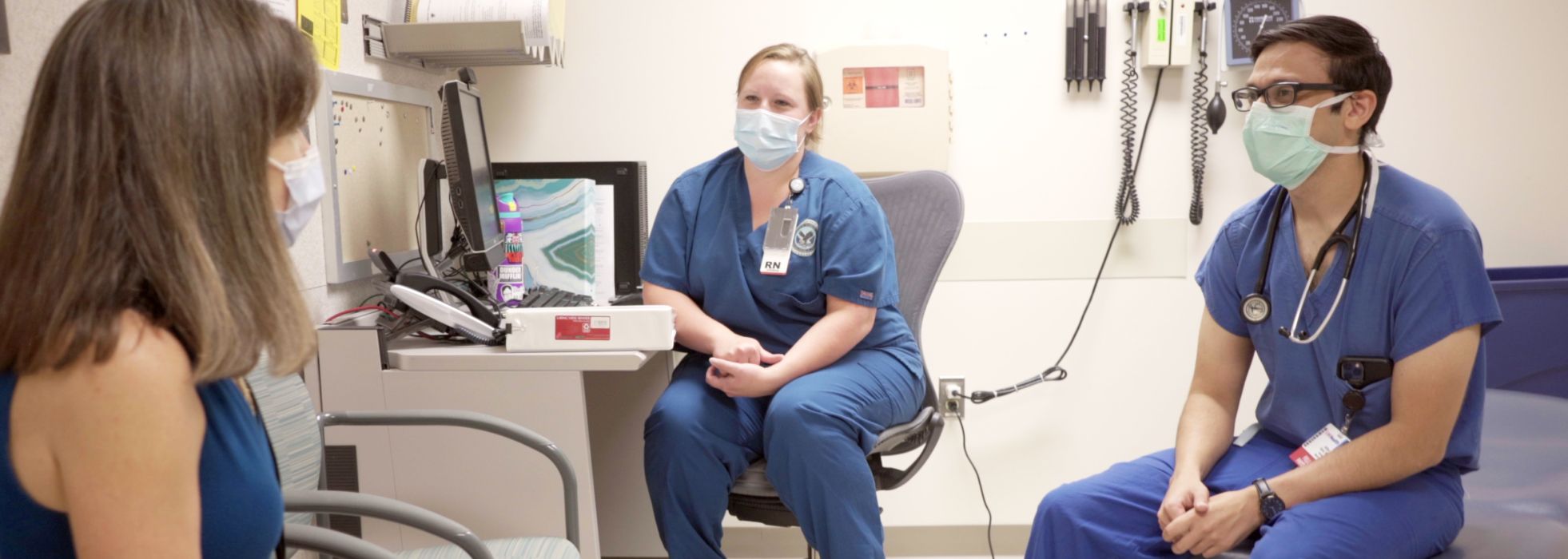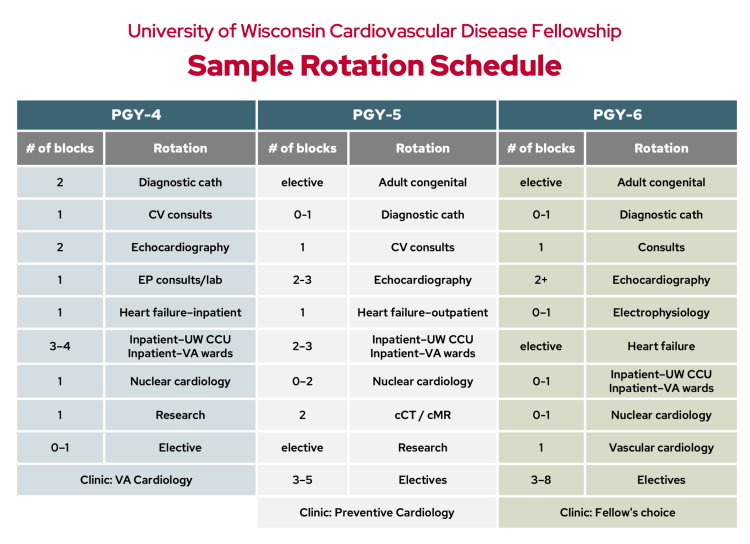Customized Training for the Career You Want
We provide you with the skills, resources and opportunities for board certification in cardiovascular disease. We follow guidelines in the ACGME Program Requirements and the ACC Core Cardiovascular Training Statement (COCATS); however, it is ultimately your responsibility to review all ABIM requirements to evaluate your overall eligibility status.
We provide COCATS Level II, and even Level III, training in all applicable modalities. We expect Echo Level II of all fellows. If you are interested in additional Level II or III training, you must declare this early and seek appropriate mentorship to ensure you can meet the requirements.
Didactic Experiences
- Survival Series. Introduces new fellows to the nuts-and-bolts of fellowship. Includes cardiac physical diagnosis, "knobology" (the practical basics of obtaining cardiac ultrasound images) and fellowship/on-call logistics presentations by senior fellows who’ve “been there, done that.”
- CVM Grand Rounds. Includes fellow case presentations and topics by invited speakers
- Core curriculum. Comprehensive weekly didactic that focuses on board preparation and clinical practice
- ECG. Twice-weekly conferences that focus on core topics and interactive reading sessions
- Imaging. Echocardiography, cCT, cMR, nuclear cardiology and correlation studies across multiple modalities (nuclear Level II training available in-house)
- Journal Club. Monthly review and critical appraisal of the literature with faculty and fellows
Many more multi- and cross-disciplinary conferences are also available to you depending on your area of interest.
Clinical Experiences
- Broaden your clinical experience across multiple unique patient populations: the quaternary referral and academic center of University Hospitals and Clinics; the adjacent William S. Middleton Memorial Veteran’s Hospital; and the UnityPoint Health–Meriter community hospital
- Create an educational experience supporting your individual goals and career plans with flexible scheduling throughout your training
- COCATS Level II (or even III) training in multiple subdisciplines is available within the standard three-year training program
The academic year is divided into 13 four-week rotation blocks. Fellows attend a half-day continuity clinic weekly with the exception of UW CCU rotations. Rotation sites vary by learning experience and PGY across University Hospital and Clinics, the William S. Middleton Memorial Veteran’s Hospital, and UnityPoint Health–Meriter.
Call Distribution
You'll begin your on-call experience in September and have the support of a senior fellow on Buddy Call to provide support via phone or in-person, as warranted.
Solo call shifts typically begin following the Thanksgiving holiday. You can expect to average roughly 36 call shifts in the first year, 30 in the second year, and 8 in the third year.
Scholarly Activity
Research
Our division is home to robust research on heart failure, arrhythmias, vascular biology and imaging. It's part of our department's rich research environment and a vibrant campus community of inquiry.
You are required to participate in some form of scholarly activity, and we encourage you to tailor this to align with your interests and skills. Faculty mentors will help you identify an area of interest and a suitable faculty mentor during your first year.
Traditional bench or clinical research is common; however, activities may also include projects focused on topics such as medical education innovations or big data mining, case report publications, or peer review of journal submissions with faculty. We provide a stipend to attend regional and national conferences.
When funding allows, select fellows may also advance research interests and experience by adding on a T32 post-grad research year to the fellowship.
Teaching
The Department of Medicine's Fellow Medical Education (FAME) Training Track trains fellows to become effective clinician-teachers and scholars.
Additional Opportunities in the Department
- QI Curriculum for Fellowship. Teaches fellows how to apply quality improvement knowledge and skills directly to clinical practice.
- Women in Leadership and Development (WILD). Trainee-led program that provides women fellows with a toolkit for career advancement and skills to negate systemic gender bias and inequities in academic medicine.

